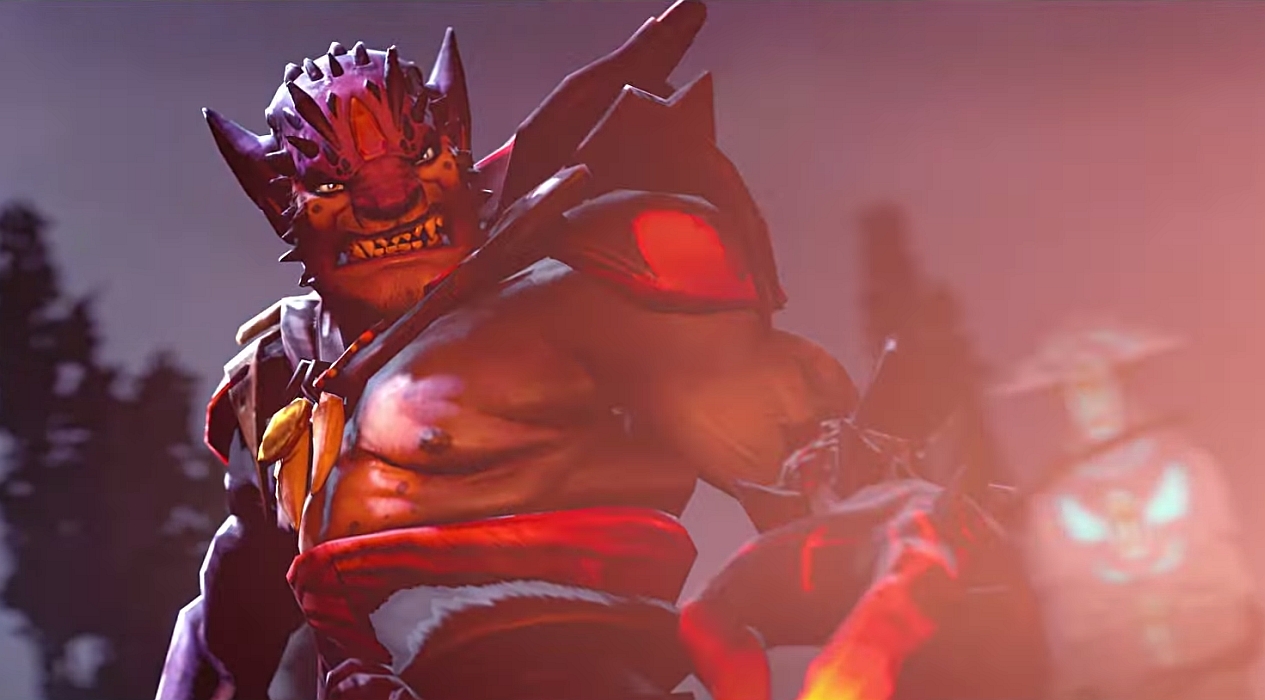Why playing the blame game will always hold you back

Every week, Chris documents his complex ongoing relationship with Dota 2 and wizards in general. To read more Three Lane Highway, click here.
When we launched PC Gamer Pro last week, I started a couple of new regular Dota 2 features. Game Is Hard, which runs every Tuesday, is an advice column where I round up emails from readers and put the questions they ask to a personality from the scene, like PyrionFlax.
It takes effort to write an email and I'm grateful for every one that I receive, but in this week's column I want to discuss a theme I've seen repeated across dozens of emails in the last week: blame, and the dispensing thereof. This is a problem that exists in every type of competitive game.
It's impossible to play Dota for any amount of time and not experience finger-pointing: whether that means being blamed for something or feeling the urge to yell at somebody else. Dota places you in a stressful, complex and codependent relationship your teammates, who will often be strangers—it's inevitable that people will sometimes lash out to make themselves feel better. It's irrational, and it makes you a worse player overall, but as a knee-jerk emotional response it makes sense in the heat of the moment. I know I've done it.
The urge to blame others becomes a more serious problem, I think, when it becomes a part of your thinking outside of the game itself. In order to account for a run of losses or an overall dissatisfaction with their matchmaking rating, players spin worldviews for themselves that place all of the blame somewhere else: in Russia, commonly, or South America, or South East Asia. This is, in all cases, wrongheaded, self-deceptive, and unhelpful, and it reveals the need to recalibrate how you approach the game.
Over the last week I've had stranger conspiracies arrive in my inbox. There are people who believe that account-boosting is so rife that there's one in every game, others who claim that Valve seed real matches with bots posing as players: all to explain away a loss, all to suggest that a 50%-ish winrate isn't 'really' a sign that they're at the right MMR. The question they ask is 'how do I improve when everybody else is an idiot', but the question they should be asking is 'how do I break out of this dumb mindset'.
It's hard to say that to somebody who is so willing to shield themselves from criticism. Besides: I completely understand where this attitude comes from. The hardest thing to change in any given game of Dota is your own level of play: other people, flawed and foreign and possibly robots as they may be, make softer targets. Under stress, people follow the path of least resistance—it's human.
There's a more practical way to go about changing your competitive mindset. Rather than try to prove or disprove that it's really the Other Guy who is spoiling all of your games, consider how useless that information would actually be.
The biggest gaming news, reviews and hardware deals
Keep up to date with the most important stories and the best deals, as picked by the PC Gamer team.
If every loss is somebody else's fault and you are playing flawlessly, you are the unluckiest human being in the world. You have broken mathematics. There is nothing you can do, and you should certainly never play any game that involves rolling a dice. If this is true, for you—like really, I-can-prove-it true—then you're screwed, aren't you? You are so unlucky that there is no point in trying to get better.
If some of the blame rests with you, if your play is not perfect, then there is something you can change. You actually have power, in this scenario, because while it is very easy to complain about other players it is very hard to make them play differently. However, it is easier than you think to make you play differently. When you die because you wandered into the enemy jungle with no vision, who is at fault? The support who spent their last 75 gold warding somewhere else, or you for going in anway? Hint: it's your fault as much theirs, they're not a robot, their nationality has no bearing on their ability, and the only useful thing you can do in that scenario is learn from your mistake.
It is incredibly empowering to learn that you're not very good at something, because that means that you are not yet as good as you can be. In-game flaming is a huge waste of energy, the construction of elaborate excuses for failure even more so. Dota 2 doesn't offer much in terms of feedback for the vast majority of players, and what it does provide can be a long time coming. You have a choice: work for that slow improvement on the assumption that you always have something to learn, or be satisfied that the result of your time with the game will be the same old story about how everything was always everybody else's fault. You can improve, or you can be blameless, but you can never be both.

PC Gamer Pro is dedicated to esports and competitive gaming. Check back every day for exciting, fun and informative articles about League of Legends, Dota 2, Hearthstone, CS:GO and more. GL HF!
Joining in 2011, Chris made his start with PC Gamer turning beautiful trees into magazines, first as a writer and later as deputy editor. Once PCG's reluctant MMO champion , his discovery of Dota 2 in 2012 led him to much darker, stranger places. In 2015, Chris became the editor of PC Gamer Pro, overseeing our online coverage of competitive gaming and esports. He left in 2017, and can be now found making games and recording the Crate & Crowbar podcast.


